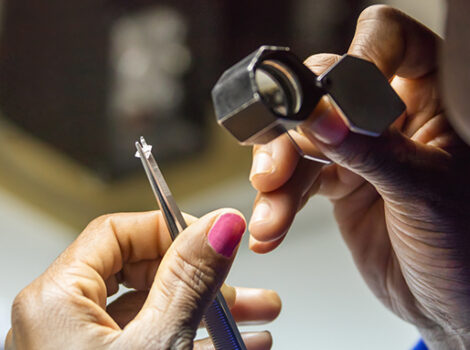
3 May 2024
The establishment of a national e-waste monitor marks the initial step towards ensuring an updated baseline to strengthen the capacity to effectively manage the e-waste sector. This report outlines the current status of e-waste management in Botswana and Namibia, and highlighting significant challenges facing the countries.
Botswana National E-waste Monitor 2024
Botswana currently lacks the capacity to efficiently monitor e-waste, which complicates tracking efforts and obstructs the establishment and evaluation of crucial targets necessary for transitioning to a more sustainable and circular economy.
To quantify e-waste stocks and flows in Botswana, the international framework employed for measuring e-waste statistics, along with the e-waste tools developed by the UNITAR Sustainable Cycles Programme (SCYCLE), were utilised. This followed a training workshop conducted in 2021.
Identified challenges in Botswana, such as the absence of a quantification methodology, legislative processes, and overall e-waste management, are outlined. Additionally, the report presents a roadmap with recommendations aimed at enhancing e-waste data quality and availability.
The primary objective of this report is to aid Botswana in identifying best practices in policies, establishing and evaluating appropriate targets, developing improved management programmes, maintaining internationally comparable e-waste statistics regularly, and achieving the SDG targets relevant to e-waste management while monitoring progress over time. The establishment of a national e-waste monitor marks the initial step toward ensuring an updated baseline to strengthen the capacity to effectively manage the e-waste sector.
Namibia National E-waste Monitor 2024
This report outlines the current status of e-waste management in Namibia, highlighting significant challenges facing the country. Namibia currently lacks the capacity to effectively monitor e-waste, which complicates efforts to track it and impedes the establishment and evaluation of targets essential for transitioning to a more sustainable and circular economy.
In accordance with Policy Objective two of the draft National Policy on Management of WEEE, the Ministry of Information and Communication Technology (MICT) of Namibia requested UNITAR and ITU technical capacity building in the assessment of baseline data on volumes of e-waste generated, including types, routes, and flows in 2019.
The international framework utilised to measure e-waste statistics, along with the e-waste tools developed by the UNITAR Sustainable Cycles Programme (SCYCLE), were applied to quantify e-waste stocks and flows in Namibia as a result of a training workshop conducted in 2021.
Challenges encountered in Namibia, such as the absence of a quantification methodology, legislative processes, and overall e-waste management, are identified. Moreover, a roadmap with recommendations on enhancing e-waste data quality and availability is presented in this report.
The primary objective of this report is to assist Namibia in identifying best practices in policies, establishing and assessing appropriate targets, developing improved management programmes, regularly maintaining internationally comparable e-waste statistics, and achieving the SDG targets relevant to e-waste management, while assessing progress over time.
The establishment of a national e-waste monitor represents the initial step toward aiding MICT in devising a national policy and action plan on WEEE management and ensuring an updated baseline to enhance the capacity to effectively manage the e-waste sector.
Source: https://www.scrapmonster.com/news/-/1/91564#google_vignette



